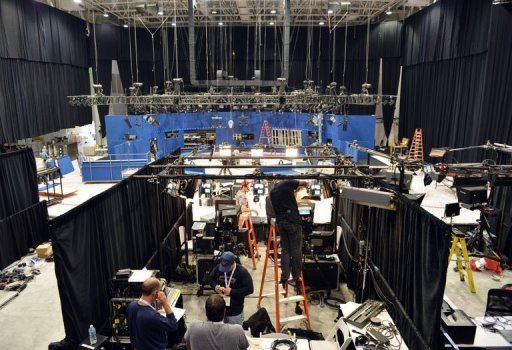WASHINGTON, DC: As President Obama shifts into a round of White House meetings with leaders from Israel, the Palestinian Authority and the Arab world, and looks for footholds that let him try new approaches, he has a quiet ally in his corner: the American public.
As is usually assumed, a third of Americans (33 percent) show more sympathy for Israel than for the Palestinians – substantially more than the 12 percent who express more sympathy for the Palestinians, according to an April WorldPublicOpinion.org poll.
However, a majority (51percent) expresses equal levels of sympathy for each side – a number that is up 10 points from 2002.
Further, three-quarters of Americans (75 percent) think that Israel should not build settlements in the Palestinian territories – and this is up 23 points from when this question was last asked in 2002. What’s more, even those who sympathize more with Israel feel that it should not be building settlements in the West Bank by a clear majority (64 percent) – as do those who sympathize equally with Israel and the Palestinians (80 percent), and those who sympathize more with the Palestinians (96 percent).
The consensus of the American public in favor of this longstanding US government position against settlement expansion includes 65 percent of Republicans as well.
But there is also now another and more surprising well of potential public support for new approaches: the publics of Arab countries.
Across six Arab countries, a poll conducted for the Anwar Sadat Chair for Peace and Development (University of Maryland) this spring by Prof. Shibley Telhami found clear evidence that President Obama now has the ear of Arab publics in Egypt, Jordan, Saudi Arabia, Lebanon, Morocco and the UAE. Across these countries, 45 percent see the new president positively – even though most continue to view the United States negatively in general.
And a modest majority – 51 percent – say they are somewhat hopeful “after a few weeks of the Obama administration.toward the policy in the Middle East. Unlike the recent past, many Arabs are open to the possibility that the United States will act in ways that improve the situation in the region.
This openness to new approaches among publics in the United States and Arab countries comes in part from the feeling that the new administration may prove willing to put fairly distributed pressure on all sides to reach a settlement of the conflict. If it does so, no one can expect other governments to always like it. But public opinion is favorably aligned to support what President Obama might try to do next.
And what of the Israeli public? Israelis have a new coalition government with an awkward, yet broad, range of views represented inside it. How will Israelis react in coming months to a US president who is clearly comfortable addressing foreign publics directly?
A people’s sense of its own identity is always partly colored by what it thinks is threatening it. Currently, Iran and its nuclear program is the threat that Israel’s leadership is putting in the foreground. But if the Israeli leadership is right and Iran is the overarching threat, why would it continue to view settlement expansion as an issue so central that it cannot change its policy?
After meeting with Netanyahu, Obama said: “We have seen progress stalled.and I suggested to the prime minister that he has an historic opportunity to get a serious movement on this issue during his tenure. That means that all the parties involved have to take seriously obligations that they’ve previously agreed to.There is no reason why we should not seize this opportunity and this moment. Then he went on to praise “Netanyahu’s political skills but also his historical vision and said that “he is going to rise to the occasion .
The US president sounds like he fully intends to define what the nature of this “occasion will be.
Clay Ramsay is research director of WorldPublicOpinion.org, a project managed by the Program on International Policy Attitudes, University of Maryland. This article was written for the Common Ground News Service (CGNews).


